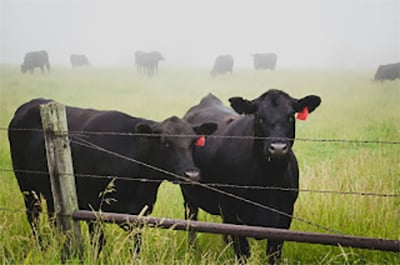Financial advisors recommend that investment portfolios be routinely rebalanced, even when they are doing well, to achieve long-term stability and security.
In much the same way, we need to rebalance our overall economy – to achieve long-term stability and security.
Our present economy is healthy in several respects. Unemployment is low, and median household incomes have recently increased. However, the ugly underside is the radical imbalance in how the benefits of economic growth are shared among Kentuckians.
According to the Kentucky Annual Economic Report 2017, changes in Kentucky household income from 1977-79 to 2013-15 are as follows:

This trend has been described as the “hollowing out” of the middle class.
In 2015, 28% of Kentucky households reported incomes of $25,000 or less. Our current median income of $42,400 is 75% of the U.S. median, and 90% of the median of competitor states. In 1998 it was $52,700, or $10,000 higher.
While Kentucky’s lower rate reflects its lower cost of living, that does not account for all the difference. Factoring that in, Kentucky’s rate comparable to the U.S. rate would be 88%.
But it is 75%.
In 1969, Kentucky household income consisted of 79% net earnings; 11% dividends, interest and rents; and 10% transfer payments (Social Security, Food Stamps, etc.). By 2015, net earnings had fallen to 60%, while transfer payments had increased to 25%. Transfers accounted for 19% of U.S. income, and 17% of competitor states income.

Finally, Kentucky’s earned income per capita, which grew parallel to the U.S. rate up to 1977, today averages $29,051, 73% of the U.S. average and 47th among states.
Unfortunately, these data coincide with Kentucky’s poverty data. In 2016 our poverty rate was 18.5%, 47th in the US. The rate for children was 24.5% (47th); for working-age women was 20.4% (48th), and for working-age men was 15.2% (46th). Our income inequality ratio, comparing the share of income going to the top 20% of households to that going to the bottom 20%, was 16.9 in 2016, 40th in the US.
So while our economy has grown, this growth has not resulted in greater social and economic health for all Kentuckians. Comparing our low unemployment rate (4.9%) with our high poverty rate (18.5%) raises questions. How much does the poverty rate reflect people who cannot work for legitimate reasons, including disabilities, chronic health conditions, caring for other family members, lack of education or training, etc., and how much does it reflect those who work but at below-poverty wages?
The present federal minimum wage is $7.25 per hour. Twenty-nine states and the District of Columbia have adopted higher levels, but Kentucky has not. The present level of $7.25 is 62% of the Federal Poverty Level for a family of four.
So how do families survive, or achieve economic stability? The answer is public benefits, paid for by taxpayers. These include Food Assistance, Child Care Assistance, Medicaid, Earned Income Tax Credit, etc. They are means-tested: only people with limited incomes qualify.
Stagnant wages result in government absorbing more of the cost of compensation for work. For someone working full time at $8.00–10.00 per hour, their employer pays half of their compensation while taxpayers pay the other half. As noted earlier, Kentucky’s reliance on transfer payments is growing, and exceeds the national average.
And while public benefits are increasingly essential to workers’ survival and stability, they have numerous downsides. They are hard to get and hard to keep, because of bureaucratic processes. They are highly stigmatized, so much so that many eligible people will not access them. And they are not flexible. If one needs tires for their car, food assistance does not help.
Kentucky needs a more thoughtful approach to income. Henry Ford, no liberal, was once asked why he paid his workers so well. He replied, “so they can buy the cars they make.” He realized that a robust market for goods and services requires consumers to have the means with which to purchase them. He understood this as an exercise of economic wisdom.
We pay for poverty and economic stagnation in other ways. The frustration, fear, and anger so prevalent today have numerous negative effects. Expressed outwardly they take the form of violence, in crime, mass shootings, civil unrest, and terrorism. Focused internally they result in depression, addiction, mental illness, domestic violence, and suicide.
The most direct path to improved wages is for employers to direct more of their increased profits to employees and less to themselves. Of existing public policy options to increase earnings, raising the state minimum wage is the simplest and most effective. It raises wages for the lowest-paid workers. It also ratchets up wages immediately above the minimum.
Recent actions taken by the legislature – eliminating the prevailing wage, instituting “right to work” which weakens unions and lowers wages, refusing to increase the minimum wage, reducing Worker’s Compensation benefits, and reducing pension benefits — on their face benefit employers.
But that is illusory. Benefits achieved are short-lived, because they come at the cost of a stable, healthy and productive workforce and populace.
There is nothing wrong with employers and the business community pursuing their interests.
Strong businesses are the foundation of our economy. And they are doing a good job. Profits are at an all-time high.
But as the data above demonstrate, directing these benefits almost solely to the highest income Kentuckians ensures a lower standard of living and quality of life for most other Kentuckians. This is not a healthy situation. We need to change it.
This is a major reason why I am running for State Representative in House District 69.
Col Owen is an Adjunct Professor at Chase College of Law and candidate for the State Legislature, House District 69.


















“Henry Ford, no liberal”
Pretty sure he was a classical liberal, which was the liberal that existed back then =P
Well said, Col and thank you.